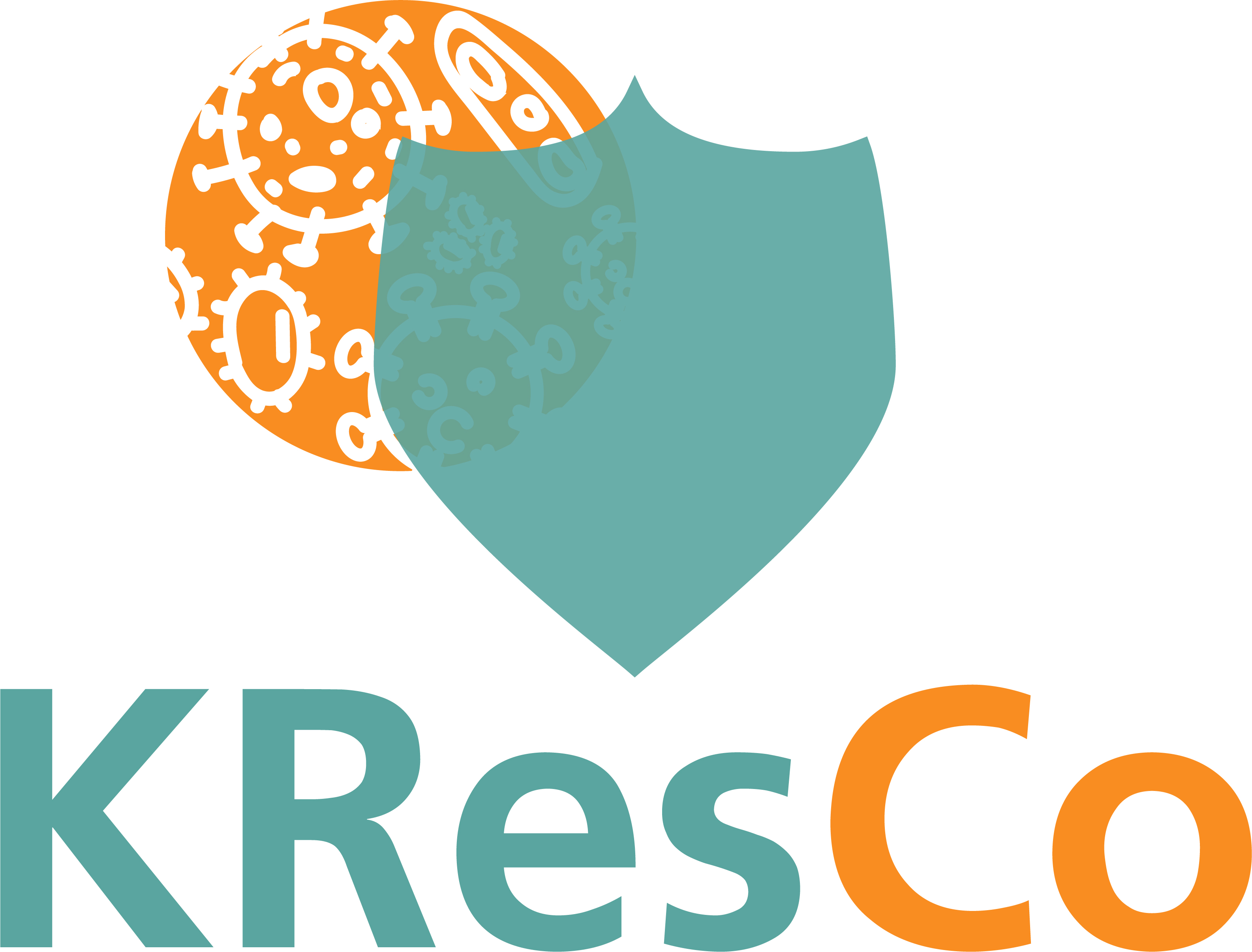Authors: Larissa Müller, Dr. Gerald Walther, Dr. Benjamin Kaluza

In collaboration with the other institutes belonging to the Fraunhofer Group for Innovation Research, Fraunhofer INT started to work on the project »KResCo« (Crisis Management and Resilience — Corona) in November 2020. The objective of the KResCo project is to analyze political decisions and their impact in relation to the COVID-19 pandemic. Using this basis, recommendations for action are to be developed for various areas of society, with the aim of providing guidance during this and for possible future pandemics.
The project aims to produce specific recommendations for action to be taken by decision-makers in the fields of politics, economics, civil protection and research. These recommendations based on scientific evidence are intended to assist with both the current COVID-19 pandemic and any future challenges. The results of the project have the capacity to contribute to greater societal resilience as decision-makers will have a better understanding of the ramifications of their decisions and crisis management should be strengthened as a consequence.
Another overarching aim of KResCo is to produce readily accessible data sets for further scientific work in to the field of pandemics.
As part of the project, political decisions made by various countries in relation to the COVID-19 crisis will be used as the central starting point. In the first step, empirical data was obtained and collected. Then, the effects of political decisions were analyzed in terms of four social systems and their stakeholders. The research areas are the economy and society, innovation, civil protection and emergency response, and research.
Over the course of the project, decisions and developments in Germany during the pandemic will be compared with those of other European and non-European countries. In addition to Germany, Austria, Italy and Sweden are among the four core countries that will be comprehensively analyzed. Italy, which was the first European country to record COVID-19 cases, and Sweden, which opted for a herd immunity approach, provide interesting comparison options. Under the coordination of Fraunhofer INT, Fraunhofer IAO, IMW, IRB and ISI will all work on the project. The Public Technology and Innovation Planning (TIP) business unit is working thematically on the work package »civil protection and emergency response«. The Defense Technology Foresight (WZA) business unit and the Technology Foresight and University Hub group are involved in the work package »applied research«. This work package investigates the risk management strategies of applied research institutes, particularly research and technology organizations (RTOs), specifically in the context of the COVID-19 pandemic. It is one aim to make the research data sets generated and used in the project available to the public for further use. To facilitate this and enable the scientists working on the project to adequately deal with all the research data, a standardised process will be established for the work package »research data management«. This will be supported by the data managers at Fraunhofer INT.
Participating institutes:
- Fraunhofer Institute for Industrial Engineering IAO,
Stuttgart, Germany - Fraunhofer Information Center for Planning and Building
IRB, Stuttgart, Germany - Fraunhofer Institute for Systems and Innovation Research
ISI, Karlsruhe, Germany - Fraunhofer Center for International Management and
Knowledge Economy IMW, Leipzig, Germany - Fraunhofer Institute for Technological Trend Analysis INT,
Euskirchen, Germany
 Fraunhofer Institute for Technological Trend Analysis INT
Fraunhofer Institute for Technological Trend Analysis INT